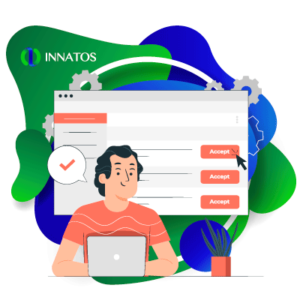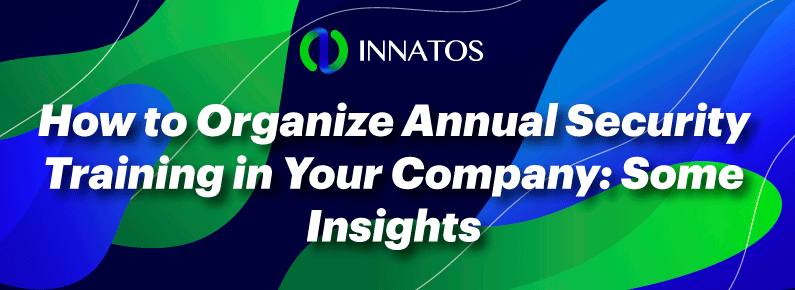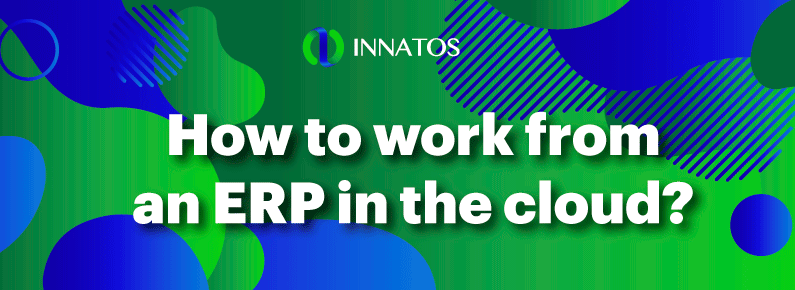Which ERP should I use for e-commerce?
Which ERP should I use for e-commerce? Production and trading companies are continuously looking for ways to serve their customers faster and more efficiently. So a very important priority is to optimize the sales process.
Both trade customers and consumers increasingly require the ability to order regardless of location and time. Therefore, many organizations are moving to e-commerce. However, with the advent of an online store also comes the need to optimize the management and organization of online sales. In most cases, this means that there will be a major impact on the ERP system.
Saving costs is one of the main goals of any business starting its journey, and also of those companies that have already started to take off in sales, but do not want to risk large investments.
Many retail software systems are quite expensive, both in terms of initial installation and contract costs and maintenance fees. As with users who shop online, the cost becomes a deterrent for many businesses.
And yet, e-commerce companies also know better than anyone how to get a quality service it;s often important and necessary to pay more.
After all this we are not going to scare you with expensive software options for stores, because, apart from the fact that there are many systems available to all budgets. It’s key to emphasize the importance of a key one in the development of an online business: the ERP for ecommerce.
What is a company’s ERP?
An ERP in ecommerce, or Enterprise Resource Planning, is the central database where all the resources and information of your company are gathered. It serves to facilitate a fast, agile and orderly access from any other system, department and employee in the company.
When a business has few products in its catalog,they thinks that it will be able to continue without an ERP for their online store. However, the expansion of the business, the growth of catalogs and the number of products, the addition of more staff, sales channels and suppliers are things that will happen sooner or later. Without an ERP for ecommerce the process will be very chaotic.
How to choose an ERP for an online store?
An ecommerce-friendly ERP
 We know you are scared of the initial expense, but an ERP is a long-term investment that will have immediate positive effects. It makes your company more efficient in cost management, access to product and business information, organization of daily work, and collaboration between different teams.
We know you are scared of the initial expense, but an ERP is a long-term investment that will have immediate positive effects. It makes your company more efficient in cost management, access to product and business information, organization of daily work, and collaboration between different teams.
Although the best option is an ERP as a complete system, there are also options for add-ons or modules with ERP functions that you can integrate into systems that you already have in advance, depending on whether a company has very focused needs. Let’s take a look at what the perfect ERP would look like as the core system for an ecommerce business.
The storefront software you choose should be an ecommerce-friendly ERP that guarantees powerful features and the ability to connect all the core departments of your business: development, manufacturing, marketing, logistics, finance and customer service. Not all companies are made up of the same type of technological and human teams. Therefore, it’s very important to look at the most used ERPs that are specifically oriented to online stores and will make your life easier from the first minute.
Which ERP should I use for e-commerce? And, of course, that also establishes connections to the outside: an ERP with the ability to automatically connect to the main ecommerce platforms or CMS.
A centralized and automated ERP
The fundamental characteristic of a good ERP for online stores is the centralization of information and the automation of access to it. Have you ever stopped to count how many types of software are used in your business every day?
From Human Resources to the sending of mailing campaigns, there are dozens of daily actions that need the same type of information. If that data is brought together in one place, you’re ensuring that everyone is using the same up-to-date, error-free version of any company and product information. The details of a customer profile, the status of each shipment, the number of orders per day, the exact stock in the warehouse, invoices, open accounts with suppliers?
But the best thing about an ERP for online stores is not only that the information is gathered in a single place, but also the automation, both in the addition of new data to the central database and in the access to it.
Other store software systems can be connected to the ERP and benefit from an organized system in advance, such as a Product Information Manager (PIM), a Data Asset Manager (DAM) or a CRM (Customer Relationship Manager). The advantage of knowing that all the information is gathered and updated in the same system goes further by knowing that you can automate its update and use in any system or equipment required.
Depending on the protocols you activate, it is possible to make the change of a product price or a promotion automatic and instantaneous in all your sales channels. Simply send the order from your ERP to all connected systems that use this information, such as your PIM (in charge of managing catalogs and online and physical sales channels), or the customer service team that will use this data in phone calls with users.
An omnichannel ERP, Which ERP should I use for e-commerce?
 An ERP in e-commerce facilitates a process so closely linked to multichannel and omnichannel sales that it is essential to be prepared in advance for this type of business.
An ERP in e-commerce facilitates a process so closely linked to multichannel and omnichannel sales that it is essential to be prepared in advance for this type of business.
By sending orders and updated information through the ERP, phases, and teams as different as sales and inventory management personnel are connected. In addition, the reservation of a product in a physical store automatically sends the relevant instructions to the warehouse (to start preparing the shipment, update stock numbers) and to the marketing team (which will send the necessary confirmation e-mails).
Without an ERP, this chain of actions could not be as instantaneous as it is today in any serious and responsible online sales business. If your business sells through various channels, check that among your ERP options there are systems that include in advance the integration of orders. This is done through online store, app, phone, physical stores (POS), marketplaces (Amazon, eBay…) or retailers, and that can automatically connect to inventory managers and courier companies.
Remember that not all ERP systems include configuration for ecommerce and having it from the beginning will save you preparation time and more expenses in customizing the software.
Warehouse and inventory ERP, Which ERP should I use for e-commerce?
Warehouse ERP also plays a vital role, as a good integration between inventory and the rest of the equipment ensures that daily sales processes will occur without errors in overstocking or understocking.
Opt for a scalable software, which offers multiple warehouse management if your network is large or you are planning to develop it in the near future. It will be easier if your software has the ability to expand with you than to look for new expansions or migrate to another more complete system.
An ERP integration in a large company can take years, so it’s best not to wait until the situation is already too complex. Think of it like choosing a sweater one size bigger for a child, as he or she is going to grow up soon.
Finally, a good ERP system knows how to interpret all the processes it gathers and offers analysis and action reports that can be very useful as a summary and reference for the company’s financial team or investors. And don’t forget that training your team and all the people who will be working with the ERP is another initial time investment that you must take into account to ensure a correct and effective integration.
An ERP system in the cloud and SaaS can be the best option to guarantee universal and instant access from any system and place in the world, apart from offering faster installation processes than an on premise or in-house system.









Leave a Reply
Want to join the discussion?Feel free to contribute!